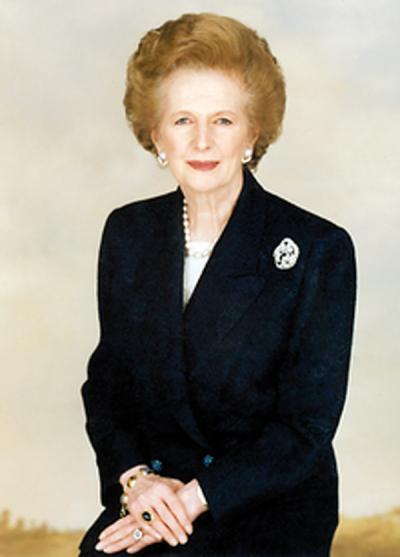The huge debate in the UK media and public following Mrs Thatcher’s death is very different from the maudlin reaction to the death of Diana – shamelessly exploited by Tony Blair as “the People’s Princess”. Margaret Thatcher was nobody’s princess. The highly polarised reactions to her death, twenty-three years after her own Conservative colleagues ditched her as Prime Minister, has nothing to do with the faltering and senile widow she had become. The controversies of her eleven years in power have been resurrected with fresh passion: her admirers putting her on a pedestal as the goddess who “made Britain Great again”, her detractors condemning the “witch” who worshipped market forces even when they destroyed jobs and undermined shared social values.
The one point of agreement is that she was a disruptive force. For those who shared her political views, radical remedies were a necessary part of Britain’s regeneration after a period when trade union restrictive practices had been one factor in Britain’s economic weakness compared with her European neighbours; and politically-inspired strikes contributed to the fall of the governments of Ted Heath (in whose cabinet she had served) and James Callaghan. What others saw was not just the curbing of excessive trade union power in sclerotic nationalised industries such as steel, the railways, coal and telecommunications, but reckless disregard for the long-term damage to industries, communities and families who stood in the way of an ideological political programme.
For most of Mrs Thatcher’s years as Prime Minister, I was serving abroad as a British diplomat. The best insights I can offer into her legacy concern two issues where I had direct experience of the difficulty of reconciling her political priorities with the complexities of international relations. Both show how, despite her pride in being the Iron Lady who was “not for turning”, she was prepared to change when confronted with hard realities.
The first was immigration. The 1979 Conservative Party election manifesto had a strong populist anti-immigrant flavour. At the time I was on secondment to the government of what was still then the UK dependent territory of Hong Kong. Although Hong Kong was prospering economically from the changes in China after the death of Mao, these changes had also led to a huge rise in illegal immigration from China, to which had been added a growing stream of boat refugees following the failed Chinese border war with her former protégé, Vietnam. Hong Kong had followed a humane asylum policy for these refugees, allowing them to land and even to seek temporary work from open refugee camps while the UN High Commission for Refugees tried to arrange resettlement. Many of the arrivals had been rescued at sea by large freighters and as part of its landing procedures, the HK government required the state under whose flag the ship was registered to give an assurance that they would accept the refugees if the UNHCR were unable to arrange resettlement elsewhere. When in 1979 it was a British flagged ship which asked to land several hundred boat refugees, we in the HK government told London that we had no alternative but to ask HMG for the same assurance as we sought from other countries. Despite this being effectively the first U-turn from the party’s manifesto commitments, that assurance was given. The UK – slowly and with considerable reluctance – set up a Vietnamese boat refugee programme. Mrs Thatcher then took the lead in calling for an international conference (held in Jakarta) to tackle this huge regional humanitarian problem.
The second issue was also part of the UK’s legacy as a former imperial power– Ireland and the Falklands War. My involvement was as First Secretary (Political and Information) in the British Embassy in Dublin. Our primary political task – dealing with the bitter aftermath of the Bobby Sands hunger strikes in the Maze prison in Northern Ireland – was complicated in mid-1982 by the need, when Argentina invaded first South Georgia and then the Falkland Islands, to keep the strongly Republican new Irish government of Charlie Haughey on board the fragile EEC consensus in support of the British position. That war is, rightly, seen as securing Mrs Thatcher’s reputation for remaking the international image of the UK by being prepared to take great risks to defend fundamental legal principles – self-determination and the right to resist unprovoked aggression. Largely forgotten, however, is that her government’s devotion to cutting government expenditure had been a significant factor in tempting Galtieri’s military junta in Argentina to believe that the moment was ripe for a military adventure that would divert attention from their internal economic difficulties. One of her Foreign Office ministers had visited the Falklands to try to persuade the islanders to consider a leaseback deal on sovereignty with Argentina; and her Chancellor had included removing HMS Endurance from its South Atlantic station as part of reducing defence expenditure.
Undoubtedly, Mrs Thatcher displayed iron resolve in both domestic and international affairs. But her backbone was that of a normal healthy and successful politician, not ramrod-stiff but made of interlinked vertebrae allowing her to bend when necessary. Remember, too, that her three electoral victories were due less to her popularity than to the disarray and unpopularity of the Labour Party.
Margaret Thatcher – A Lady with a Strong but Flexible Backbone
- Publicité -
EN CONTINU ↻


